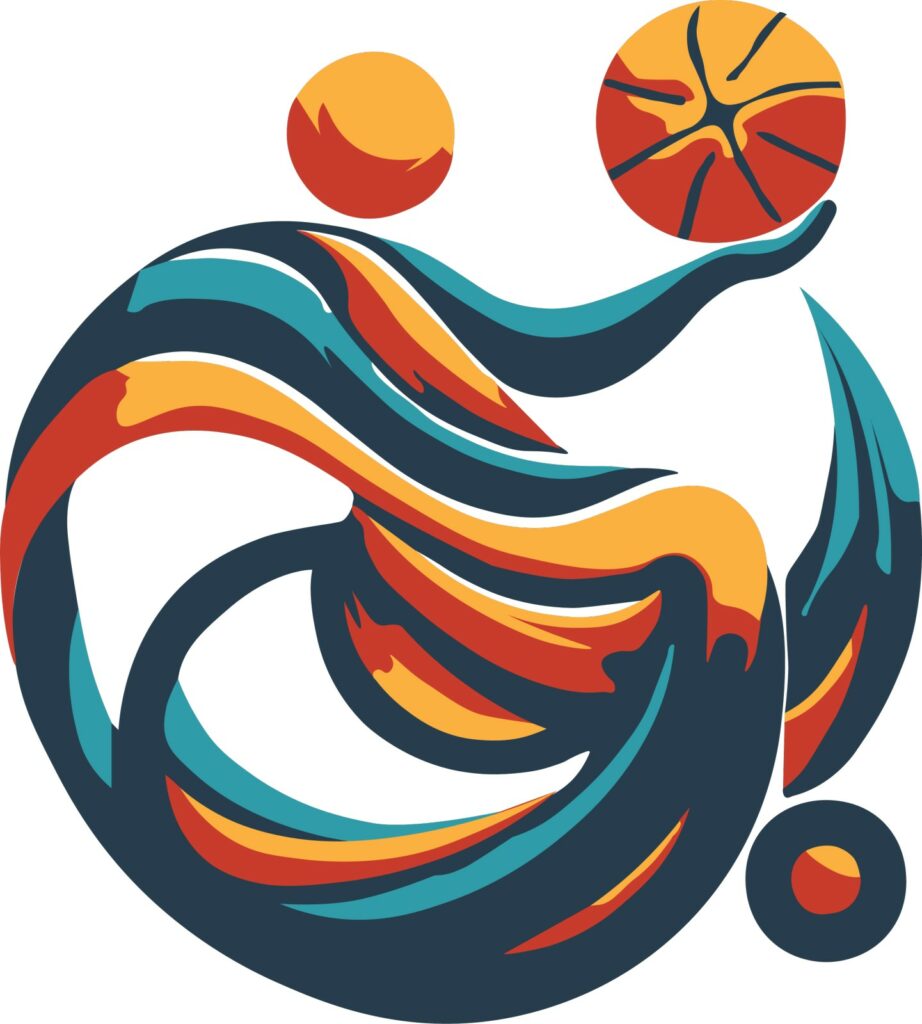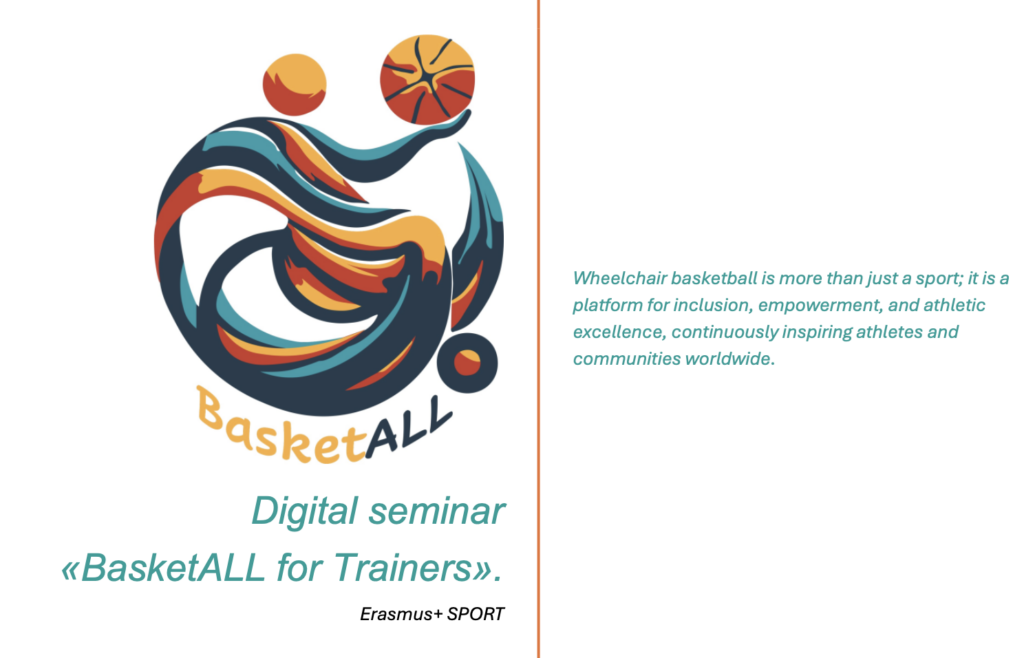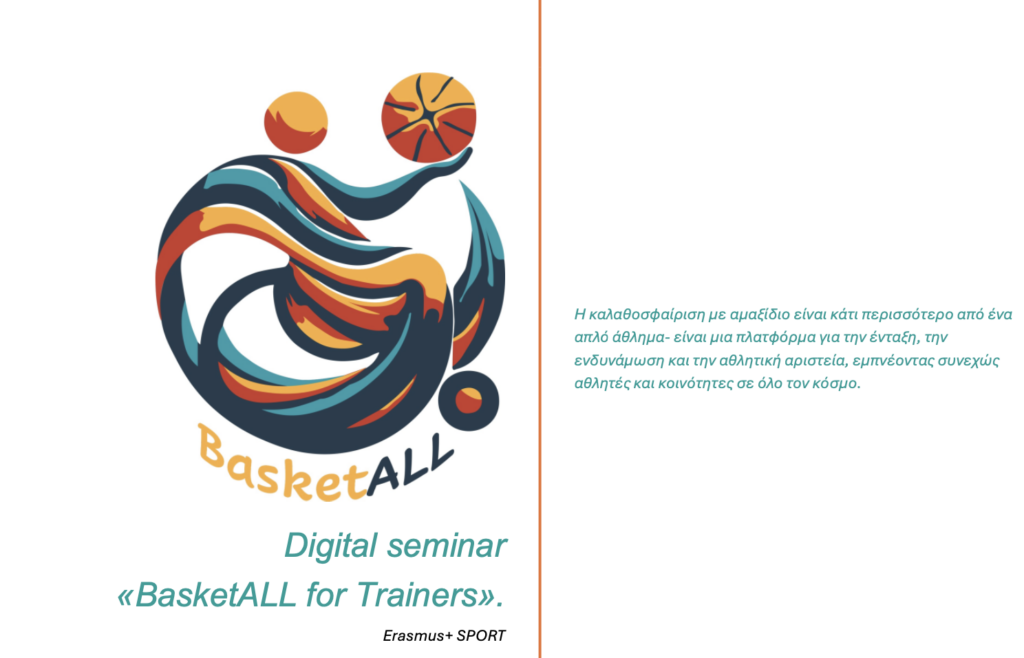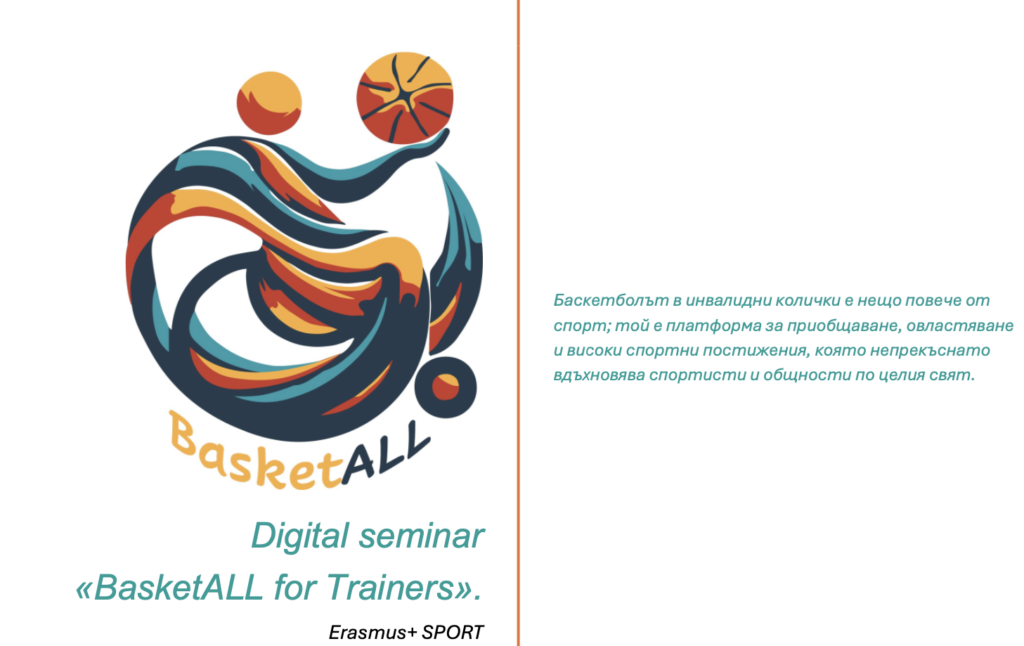
BASKET Adaptations for ǎLL
2day Digital seminar «BasketALL for Trainers».
Introduction
Sports play a significant role in the lives of millions of Europeans, promoting community cohesion, social inclusion, and a sense of European identity. Additionally, the sports sector employs millions of European citizens and contributes billions of euros in revenue, making it a crucial aspect of the European economy. Policymakers, education professionals, and national and regional experts are actively involved in ensuring that sports continue to address the challenges in this field.
To this end, the European Commission conducts regular surveys on sports and physical activity, such as the fifth Eurobarometer, which revealed that 38% of Europeans engage in sports or exercise at least once a week, while 17% do so less frequently. However, an alarming 45% of Europeans do not engage in physical activity, highlighting the pressing need for continued promotion of sports and physical activity. The COVID-19 pandemic has also negatively impacted physical activity levels, with half of Europeans reducing their activity levels or stopping altogether. (https://ec.europa.eu/commission/presscorner/detail/en/ip_22_5573).
However, no statistical data is currently available regarding the participation of individuals with disabilities in sports in the EU. The term “disability sports” is used to refer to sports activities developed specifically for the benefit of people or athletes with disabilities. Unfortunately, opportunities for disabled individuals to engage in sports remain limited.
The 2018 Eurobarometer survey shows that having a disability or illness is the third most frequently cited reason (14% of respondents) for not participating in sports more regularly. Therefore, the inclusion of disabled individuals in sports is of critical importance, as over one billion people worldwide, including over 70 million in the EU, live with disabilities. These individuals experience lower levels of participation in many activities, including sports, compared to those without disabilities. The removal of barriers in sports for disabled individuals is essential to promote their inclusion in sports.
Sport is a particularly important tool for transforming the lives of women with disabilities, who often face dual discrimination based on their gender and disability. According to reports, 93% of women with disabilities are not involved in sports, and women constitute only one-third of athletes with disabilities in international competitions. By providing opportunities for women with disabilities to participate in sports and showcase their physical abilities, sports can help to reduce gender stereotypes and negative perceptions associated with women with disabilities (https://www.un.org/development/desa/disabilities/issues/disability-and-sports.html).
Furthermore, by improving the inclusion and well-being of individuals with disabilities, sports can contribute to achieving the Millennium Development Goals (MDGs). Sports-based opportunities can help achieve universal primary education (MDG2) by reducing the stigma that prevents children with disabilities from attending school, promote gender equality (MDG3) by empowering women and girls with disabilities to acquire health information, skills, social networks, and leadership experience, and lead to increased employment and reduced levels of poverty and hunger (MDG1) by reducing stigma and increasing self-confidence (https://www.un.org/development/desa/disabilities/issues/disability-and-sports.htm l).
Although the above statistics may not be favorable for individuals with disabilities, it is important to note that there is a significant number of PWDs who are actively involved in sports, with some even participating at a professional level. Wheelchair Basketball is one such impressive sport that is accessible to people with disabilities, as well as those without, making it an inclusive sport that anyone can play regardless of age, ability, or gender. Even non-disabled people are welcome to participate and compete, which makes it an excellent opportunity to play alongside friends and family.
The BASKETALL seminar, which is part of the Erasmus+ Programme’s “Small scale Partnerships” action, aims to promote the objectives of the program by increasing access to sports for newcomers and organizations that are less experienced or small-scale, supporting target groups with fewer opportunities, and fostering active European citizenship. The project also aims to improve the quality of work and practices of participating organizations and institutions, build capacity for transnational and cross-sectoral work, address common needs and priorities in the fields of education, training, youth, and sport, and enable transformation and change at individual, organizational, or sectoral levels. The importance of sports in the lives of Europeans cannot be overstated, as it promotes social inclusion and community cohesion, fosters a sense of European identity, and contributes significantly to the European economy.
To address the challenges in this field, policymakers, education professionals, and national and regional experts are actively involved in ensuring continued support for sports and physical activity. In this regard, WheelPower has partnered with Wheelchair Basketball to provide opportunities for disabled individuals to engage in sports and lead active and healthy lives.
Basketball has been selected in the framework of the BasketALL program as a tool for “inclusion in inclusion” because of its accessibility to everyone, regardless of age, gender, or ability. BasketALL aims to enrich the lives of disabled individuals and positively impact their future by using proper sports equipment and teaching adaptive basketball with new rules.
Additionally, the BASKETALL’s digital materials aim to address digital transformation by developing the digital readiness, resilience, and capacity of both trainers and trainees. Furthermore, BASKETALL offers skill development in sports and promotes employability through sports for trainers while encouraging healthy lifestyles for all.

Disclaimer: Funded by the European Union. Views and opinions expressed are however those of the author(s) only and do not necessarily reflect those of the European Union or the European Education and Culture Executive Agency. Neither the European Union nor the European Education and Culture Executive Agency can be held responsible for them.


